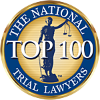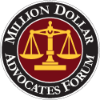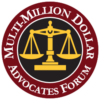Healthcare Fraud Whistleblowers
How much does the government lose to healthcare fraud every year? And who foots the bill?
How much does the government lose to healthcare fraud every year? And who foots the bill?
The government loses several billion dollars a year due to fraudulent and otherwise improper claims for payment by hospitals, doctors, medical-device manufacturers, and others in the healthcare field. These overpayments, of course, may have to be offset by higher taxes or reduced spending on programs that benefit Americans.
Overcharging can take a variety of forms. A hospital or physicians’ practice can bill Medicare, Medicaid, or TRICARE for procedures that are not medically necessary or a pharmaceutical company or manufacturer can mislead the government.
“Upcoding” is another common method of fraud. For example, a healthcare practice that bills Medicare for providing treatment via licensed doctors violates the law if its patients were seen by nurse practitioners or other non-physicians. Some of these cases involve outright fraud, with the provider intentionally lying to line its pockets. But the law also penalizes reckless billing and invoicing errors that result in overpayment.
The False Claims Act (“FCA”) allows for lawsuits to recover these improperly billed amounts. A recovery can be as large as three times the amount of the improper billing – what’s known as “treble” or triple damages – plus costs, expenses, and attorney’s fees associated with the litigation. In the 2019‒20 fiscal year, the government recovered more than $1.8 billion of improperly-billed healthcare payments.
A whistleblower is a person who sues on the government’s behalf in a “qui tam” lawsuit. Lawsuits brought by whistleblowers (who are also known as “relators”) accounted for 88.5% of the $24.8 billion in FCA judgments and settlements between 2011 and 2020. The whistleblower can be anyone who has non-public knowledge about the fraud. It can be an employee at a hospital or doctor’s office that takes Medicaid or Medicare, for example. It can even be a competing medical practice.
The law typically entitles eligible whistleblowers up to 30% of any settlement or court judgment, depending on the circumstances. Whistleblowers’ shares of judgments in fiscal 2019‒20 came to nearly $262 million, not including awards of attorney’s fees and expenses.1
Fraud and improper billing practices need not include a low standard of care or even a lack of care, as evidenced in a case handled by our own Bill Nettles and Fran Trapp. South Carolina’s largest urgent care provider and its management company agreed to pay $22.5 million in a whistleblower action accusing them of shady billing practices.4
The problem arose from “billing credentials” – a requirement for billing to the insurers. The companies failed to properly obtain or renew credentials for some of its doctors, and instead of waiting or finding a temporary solution, billed the care from doctors without credentials under doctors who had them.
In another False Claims Act case handled by Bill Nettles when he was the U.S. Attorney for the District of South Carolina, two cardiovascular testing laboratories paid $48.5 million after a bribery, kickback, and fraud scheme.4 They paid kickbacks to physicians for referrals and then billed federal health care programs for medically unnecessary testing.
The federal FCA and its state counterparts protect whistleblowers from retaliation, though the specifics differ based on the specific law in question. Retaliatory acts can including the following:
At the federal level, an employer or contractor who suffers retaliation may be entitled to “all relief necessary” to make him or her whole. This can include reinstatement in the job, double the amount of back pay lost as a result of termination, and attorney’s fees. A terminated employee or other person who suffers retaliation may be entitled to this compensation even without proving that the employer/contractor made false claims for payment.
A retaliating employer often argues that the whistleblower was fired for job performance or other reasons unrelated to the FCA activity, but the burden is on the employer to prove that it would have taken the action based on those other reasons.
State laws vary, and North Carolina and South Carolina have very different approaches to whistleblowers. It’s advisable to remember that many state-administered healthcare programs use federal money. Any fraud you see may be the tip of an iceberg, and your state-based claim may also involve the federal government – and the False Claims Act. Speak with a whistleblower lawyer. We can help you understand how best to proceed.
Start with what you should not do. Don’t talk to anyone until you contact an experienced whistleblower lawyer. There are two reasons for this.
If you suspect or know of healthcare fraud or improper billing, you should contact an experienced whistleblower attorney immediately.
A whistleblower with knowledge of healthcare fraud can file a lawsuit “under seal,” meaning that it is not made public and cannot be found in a search of the court’s database. The defendant is not immediately notified and is not immediately obligated to respond to the lawsuit. Government attorneys are notified so that they can investigate and then decide whether or not to take control of the lawsuit.
Once the government makes its decision, the case is unsealed, and the defendant is notified and required to respond. A defendant will not be held liable unless it knew or should have known about the improper billing. Working together, you and your healthcare fraud attorney can determine if the company had the legally required level of awareness.
Further investigation can be absolutely crucial if you suspect healthcare fraud but do not have first-hand knowledge of it or know details of how it has been perpetrated.
Either way, you should act in a timely manner and contact an experienced healthcare fraud attorney. Statutes of limitations apply to FCA lawsuits. Moreover, a court will likely dismiss your case if a different whistleblower has already filed a case – unless you bring evidence that their case did not.
With far more than half of the government’s fraud recovery in the healthcare industry, healthcare fraud has reached epidemic proportions. Courageous whistleblowers report 80% of fraud that is exposed, but the vast majority of fraud against the government goes undetected.
If you suspect healthcare fraud against the federal or state government, let’s talk. We are here to confidentially and discreetly help you determine if you should move forward with a qui tam claim. We appreciate the struggle you may be facing. That is why we have a You-First Policy in place. We can fight to help protect you regardless of your involvement.
Contact us or call 1-888-292-8852.
If we decide to take your case and you don’t get a reward for reporting fraud, you owe us nothing.2






If you’re wondering if it’s a good idea to speak with a whistleblower lawyer about what you know, let us set the record straight.
"*" indicates required fields